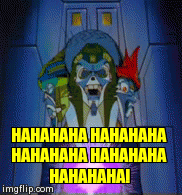Not really. I dispute the idea that Gerrold was qualified to run an hour-long live action drama because he'd never done so before.
Well, that's a nonsensically circular standard. If the only way to become a showrunner were to have already been a showrunner, how the heck could anyone ever become a showrunner in the first place? Every showrunner has to start somewhere. Heck, Joss Whedon had never been a showrunner when he did Buffy the Vampire Slayer. And D.B. Weiss and David Benioff were never even TV writers at all prior to showrunning Game of Thrones.
Indeed, the majority of Star Trek showrunners were first-timers in that role: Maurice Hurley, Michael Piller, Jeri Taylor, Ira Steven Behr, Brannon Braga. They all rose through the ranks and had plenty of experience by the time they reached the showrunner level, but none of them had been an actual showrunner before, as far as I can tell. (Maybe add Kenneth Biller, whose only prior executive producer credit was on a single TV movie.)
The business side is the purview of the other executive producers. The showrunner is specifically the executive producer in charge of the writers' room; it's the other, non-creative EPs who handle the business and logistical end. For instance, Rick Berman handled the business and logistics for the Trek shows while the various showrunners (those listed above plus Roddenberry and Manny Coto) handled the writing. Bryan Burk handles the business side of Bad Robot's shows while Abrams handles the creative side. And so on.It's different from being just a writer or just developing the format of the show. There's a business side to running a show that he doesn't seem to have any experience with.
Agreed, but what does that have to do with my post? I never even mentioned Cushman. The only sources I've cited are the WGA West's website and a 1994 letter by Gerrold.Cushman is an unreliable source.
Naturally everyone has a bias, and Gerrold's ego is well-known. But I don't find your comments to be any more credible than his. In a matter this emotionally charged, it's best to step back and look at things dispassionately.As for Gerrold, nearly every word out of the man's mouth is intended to inflate his importance and value. It's impossible to have a true picture of what his actual contributions to TNG were.
I think you're confusing me with someone else, because I do nothing of the sort. On the contrary, I quoted a paragraph of a letter in which Gerrold says he did not begrudge Roddenberry's solo credit. I said that I found the WGA's reasoning for giving Roddenberry solo credit to be strange given the inconsistency with similar situations, but I fail to see how acknowledging a confusing decision by the members of the WGA could possibly be construed as a criticism of Roddenberry himself. Nor did I say the decision was wrong, merely puzzling because of the inconsistency. My interest is not in making value judgments or condemnations, merely assessing the facts.Also: I'm well aware of Gene's shady dealings with people, but let's also, for the moment, take a step back and acknowledge that just because he'd done it before, it doesn't automatically mean he did it with Gerrold. I'm not saying it couldn't have happened, but you make it sound like it's all but verified that it did.
It is also fallacious to define the question in terms of Roddenberry vs. Gerrold. If you read the letter I quoted above, it's clear that Gerrold does not blame Roddenberry for his mistreatment. He blames Leonard Maizlish and the other people who "handled" the increasingly ill and confused Roddenberry and convinced him that Gerrold had betrayed him. Gerrold has been denouncing Leonard Maizlish in countless ways for the past quarter-century, even to the extent of basing obnoxious and unethical characters on him or having characters in his books use Maizlish's name as a curse word. His animosity has never been directed at Roddenberry himself.

 We've had entire threads showing why this claim is laughable. Well sourced threads.
We've had entire threads showing why this claim is laughable. Well sourced threads.



